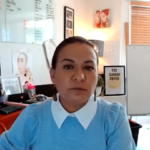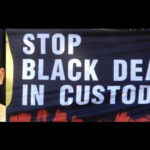Community Legal Centres Under Threat

There are thousands of lawyer jokes out there, and the legal profession isn’t exactly the most beloved group of people.
But in times of legal trouble, an experienced lawyer may be just what you need.
Dedicated lawyers can help reduce your stress levels and make the ordeal of going though legal proceedings a whole lot easier. Cases don’t just win or lose themselves – your lawyer’s experience, knowledge and performance can make all the difference to the end result.
But legal services are costly, placing a heavy financial strain on those unfortunate enough to be going through the legal process.
The stakes can be high, especially for people who are facing serious criminal charges that can lead to imprisonment. Those accused of serious crimes can hardly do without legal representation when their liberty is under threat, but if there’s no money to pay a lawyer, where can they turn?
Often, those who can’t afford a private lawyer will seek the help of community legal centres (CLCs).
CLCs offer free legal assistance for a range of issues to those who are financially disadvantaged.
Funding crisis
CLCs are funded by the federal government, and the funding is administered by Legal Aid. However, CLC funding has been dramatically reduced in recent years.
The ABC reports that in 2013-2014, an estimated 150,000 people who sought assistance from CLCs were turned away due to lack of funding. This was about 43 per cent of all people who sought help in that period.
More funding cuts have been announced for the new financial year have been announced, which culminate in a massive 30 per cent cut in 2017.
National Association of Community Legal Centres (NACLC) chairperson Michael Smith said that CLCs are experiencing unprecedented levels of demand, and described the situation as “chronic underfunding.”
He also commented that “the crisis in legal help has been well documented. The Productivity Commission recently called for all levels of government to work together to provide an immediate injection of $200 million per year for legal assistance services – across Community Legal Centres, Indigenous Legal Services and Legal Aid Commissions.”
The impact of the cuts
The result of the funding crisis is that the criteria for CLC assistance are becoming increasingly stringent, leading to many vulnerable and disadvantaged members of society being unable to access legal assistance at all.
Smith says that “often CLCs are the last point, so after us, there’s really nowhere else to go.” The only option for many is to represent themselves against a well-resourced prosecution. The prospect of defending yourself can be extremely daunting, and can lead to innocent people pleading guilty or being wrongly found guilty in court.
Funding cuts lead immediately to cuts to staff lawyers – the very people who provide the legal advice and facilitate outcomes.
This was painfully demonstrated at the Far West CLC in Broken Hill. In May 2015, amid to-ing and fro-ing between state and federal governments about who should provide funding, three senior staff quit as well as a staff lawyer.
This was a terrible blow for Broken Hill and the surrounding community, especially as the CLC provides valuable assistance to people who find themselves in a range of serious situations.
Family violence placing increased pressure on the system
Against the backdrop of the current domestic violence discussion in Australia, the cuts to CLC funding are at odds with the federal government’s claims that it wants to stop the family violence epidemic that is sweeping the country.
Yet CLCs are experiencing more and more requests for assistance over family violence issues at a time when funding is becoming increasingly restricted.
In May 2015, the ACT Women’s Legal Centre executive director Elena Rosenman told the ABC that the cuts had restricted their legal services by about one third.
She said that “Tony Abbott appointed Rosie Batty as Australian of the Year, he said the announcement showed that his government was committed to the cause of ending domestic violence. My view is that cutting funding to services like ours which are providing services to women trying to leave violent relationships, directly undermines that sentiment.”
The future
Exactly how CLCs will continue to function is uncertain.
No doubt reliance on volunteer lawyers will increase, but that can’t be the whole solution. When it comes to the conduct of a case and file management, it is necessary for a lawyer to take charge and ensure that the matter proceeds appropriately. Lawyers who volunteer for a few hours per week cannot possibly ensure that clients are given adequate representation for their important matters.
It is highly unlikely that the federal government will provide the yearly $200 million that public legal organisations require. In fact, it seems unlikely that there will be any funding increase at all, given the foreshadowed cuts in 2017.
This is a terrible situation for people who cannot access to justice in any other way but with the help of a CLC.
The cuts make our legal system increasingly geared towards the rich, and the well-funded police and prosecution. Access to ‘justice’ for all – as long as you are on the side of the prosecution or are wealthy enough to pay for a private legal team and everything else required to mount a strong defence. It’s just plain wrong.






